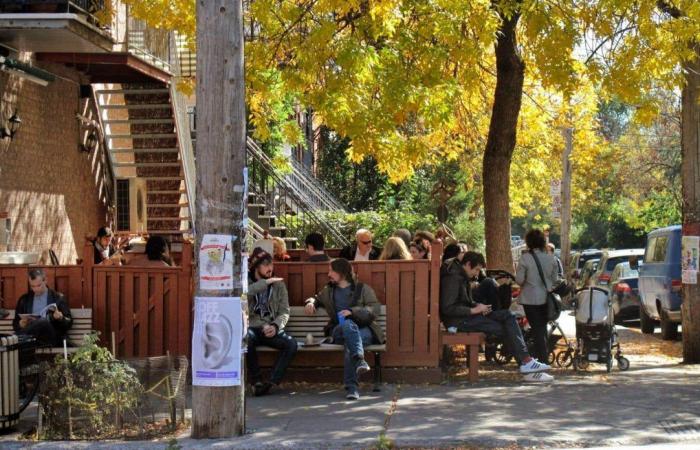I often hear that French is not in decline, that the government is wrong, that it is the characteristic of modern languages to evolve. People say that the Coalition Avenir Québec uses this argument to slow down immigration. In absolute terms, I believe that French is in decline, particularly in the mainland. Let me tell you why.
I work in a bar in Mile End, so I meet a large part of the population of this area, and even adjacent boroughs. From the outset, I tell you bluntly, it is not the English-speaking citizens of Mile End who are the subject of this article. It is rather the French speakers who frequent or live there, whether they are Quebecers, Swiss, French, Belgians, West Indians or from French-speaking Africa, or from any region of the world whose official language is French. In Mile End, the use of the English language predominates; Indeed, it seems that French speakers are more accommodating when it comes to learning and using English.
Consequently, French is neglected by French speakers in this neighborhood. I’ll give you a few examples: I’ve often been approached in English, even though my interlocutor is French-speaking; when French speakers communicate with allophones, they tend to use English (no doubt they think that English is easier to understand); it even happens that Montrealers whose native language is French prefer to use English to converse with each other, with friends, or with family.
I am only commenting on Mile End, even though I know that many Montreal neighborhoods are characterized by this same dynamic. I don’t see all this in a bad way. Rather, I resign myself to this state of affairs, to this observation, because what can I do?
The power of the French language is being lost in Montreal. English is much more practical, much more connected to the culture of social networks, to cinema and popular music, to the world of work, so that it is more interesting to use this language to discuss a culture that is predominantly English-speaking and, moreover, increasingly influential.
Sustained French is a curiosity now. It presents a rare and ancient vocabulary which no longer seems to have its place today.
Perhaps I have too high expectations for the future of our language?
It is true that I am studying for a bachelor’s degree in literary studies at the University of Quebec in Montreal. French is important to me, and I am happy to be able to express myself every day in this language. But it is clear that French has lost its appeal. More and more French speakers are deciding to use English because it opens more doors, because it is easier to exclaim in this language and to refer to the English-speaking culture which abounds today.
Do with this state of affairs what you will. We are on the French branch, but know that we are going on the English branch; we already have one foot on it.
To watch on video
#Canada






